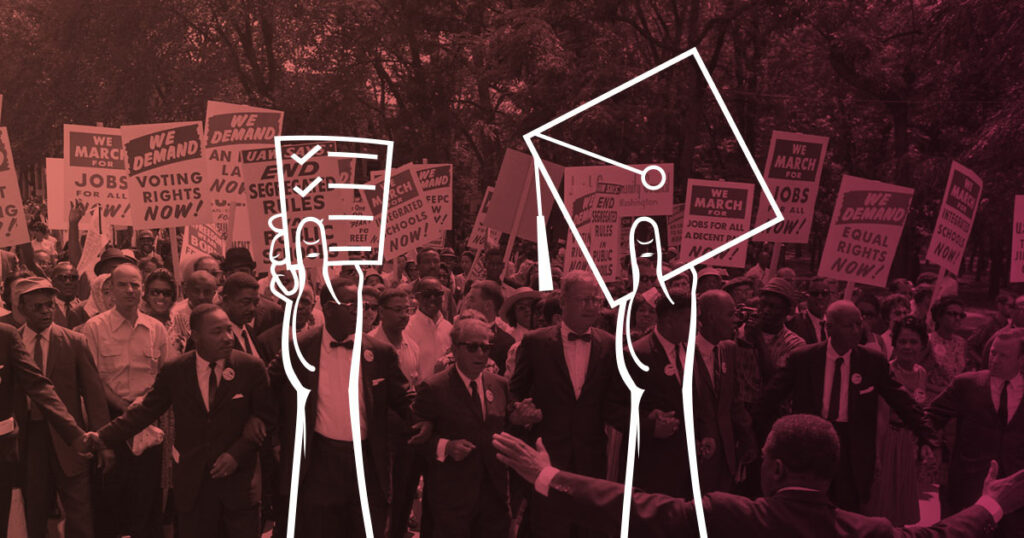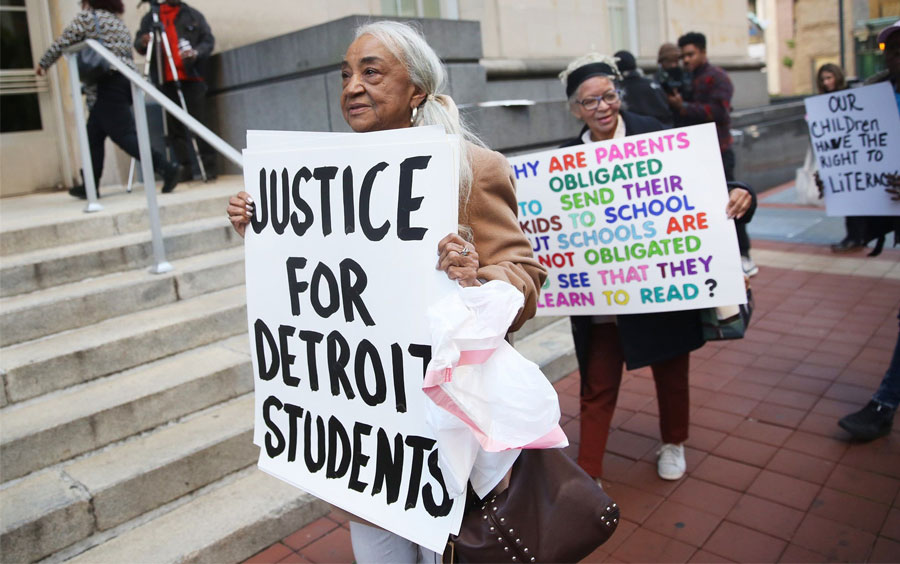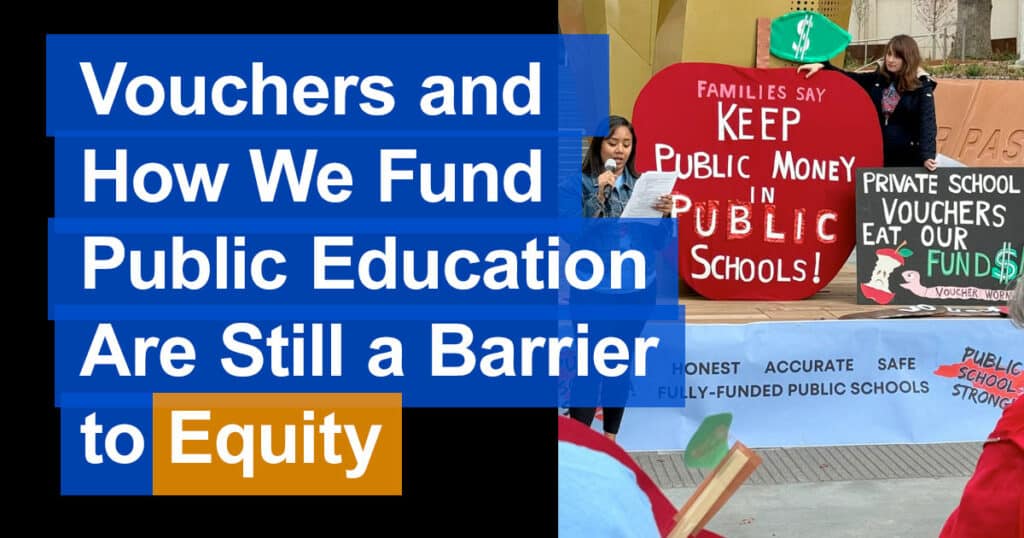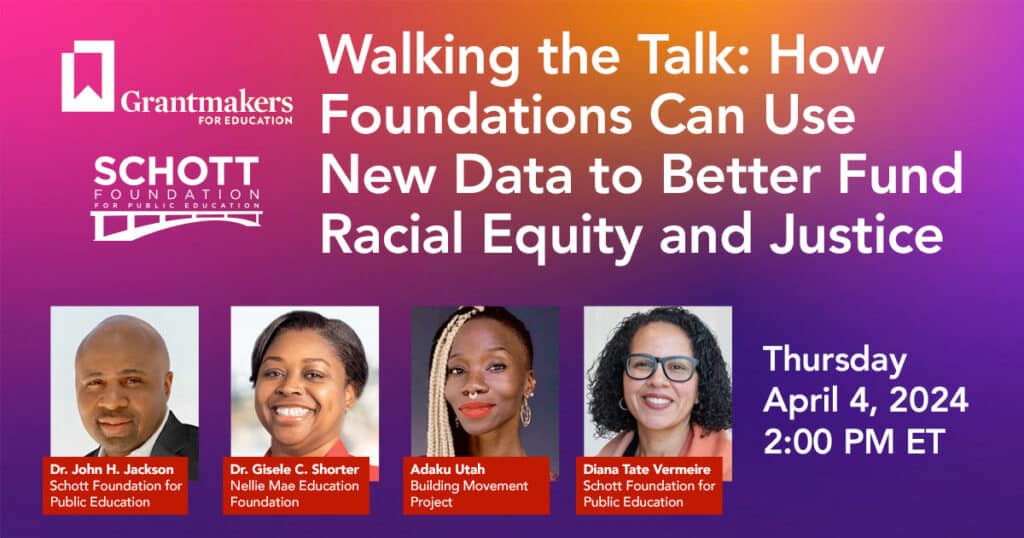Blog
The Struggles for Racial Justice at the Ballot Box and the Schoolhouse are One and The Same

The two institutions of American life most central to the struggle for racial justice and civil rights have been, from the start, the voting booth and the schoolhouse.
During Reconstruction, Federal troops ensured voting rights for Black residents in former Confederate states. The legislators those new voters elected in states across the South made the establishment of public schools their top priority. Similarly, the flurry of Federal action in the 1960s in response to a growing Civil Rights Movement produced landmark bills: the Voting Rights Act and the Elementary and Secondary Education Act, both passing in the same year.
Conversely, when the forces of reaction and white supremacy have attacked, it’s often been against voting and education. In the Jim Crow era, literacy tests at the polls went together with segregated schooling that underserved Black students. For the better part of a century, policymakers who have wanted to roll back voter protections are the same ones who have wanted to privatize and segregate public schools. As we note in our Loving Cities Index, the driving indicators of a community’s health cut across issues, from education to civic participation to healthcare. It’s all connected.
Struggles Converge at the School Board
It shouldn’t surprise us, then, when we see the question of elected school boards take on heightened importance in the struggle for racial justice. With the rise of state and mayoral takeovers of school districts, local school boards are appointed or abolished entirely. The stated goal is usually to reverse falling test scores or graduation rates. A 2015 report by the Alliance to Reclaim Our Schools (AROS), a Schott grantee partner, highlights not only the lack of school improvement in the vast majority of takeovers but the racially disparate impact they have:
Taken alone, the academic results and financial cost of state takeovers and achievement districts ought to give pause to legislators considering them. But beyond the measurable impacts, the optics are disturbing: hundreds of schools and districts with majorities of African American and Latino voters are being denied the right to control their own schools. And many of those bearing the brunt of state takeovers, residents of Michigan, Wisconsin, Missouri, North Carolina, and other states, are also facing a revival of voter suppression policies. Many communities are starting to see a connection.
 Chicago has been under mayoral control since 1995. Philadelphia has been under state control since 2001. Detroit, with a brief respite, has been under state control since 1999. Even Little Rock, home of the Little Rock Nine and center stage of the original struggle for school desegregation, had its elected board removed in 2015. The AROS report notes that of the 49,045 students who attend school in state-run school districts, 98% of them are Black or Latino.
Chicago has been under mayoral control since 1995. Philadelphia has been under state control since 2001. Detroit, with a brief respite, has been under state control since 1999. Even Little Rock, home of the Little Rock Nine and center stage of the original struggle for school desegregation, had its elected board removed in 2015. The AROS report notes that of the 49,045 students who attend school in state-run school districts, 98% of them are Black or Latino.
Dr. Domingo Morel, in his 2018 book Takeover: Race, Education, and American Democracy, posited that the escalation of state intervention in local affairs starting in the 1970s was a direct reaction by largely white legislatures against the rise of Black political power in major cities.
It’s during these undemocratic periods that unpopular policies are passed, particularly the imposition of charter schools, voucher schemes (historically designed to bypass desegregation orders), and public school closures. School closures were so widespread in Chicago that there are many neighborhoods without a single public school that local children can attend.
Communities are Fighting Back and Winning
In the past few years, significant victories have been won. At Schott, we understand the work that must be done behind the headlines and rallies: transformative change must be invested in over the long term. We partner closely with grassroots groups that have deep connections to communities, which is how we can find and support promising efforts long before they’re on many people’s radar.
Last November saw the return of school board elections in Little Rock for the first time in six years, though the board is still hamstrung with restrictions by the state. Schott grantee partner Grassroots Arkansas and others who have worked to return the board to local control see it as an important if partial win.
Just this past summer, Illinois Governor J.B. Pritzker signed a bill establishing an elected school board in Chicago, albeit gradually. Elections to a 21-person board will be phased in starting November 2024 and completely by 2027. Local and national organizations, like Schott grantee partners the Kenwood-Oakland Community Organization and the Journey for Justice Alliance, have pointed to Chicago’s mayoral control as a key driver in the school closures, privatization, and re-segregation the city has seen over the past two decades.
Elected school boards don’t guarantee equity, justice, and opportunity, but history has shown they’re a necessary first step. Thousands of school board members are up for election this November, and it’s up to us to not just vote, but organize to keep and expand community voice in our public schools. One way you can help is by donating to the Loving Communities Response Fund for Racial Justice, our participatory fund that gives grants to grassroots education justice groups doing important community organizing work.


